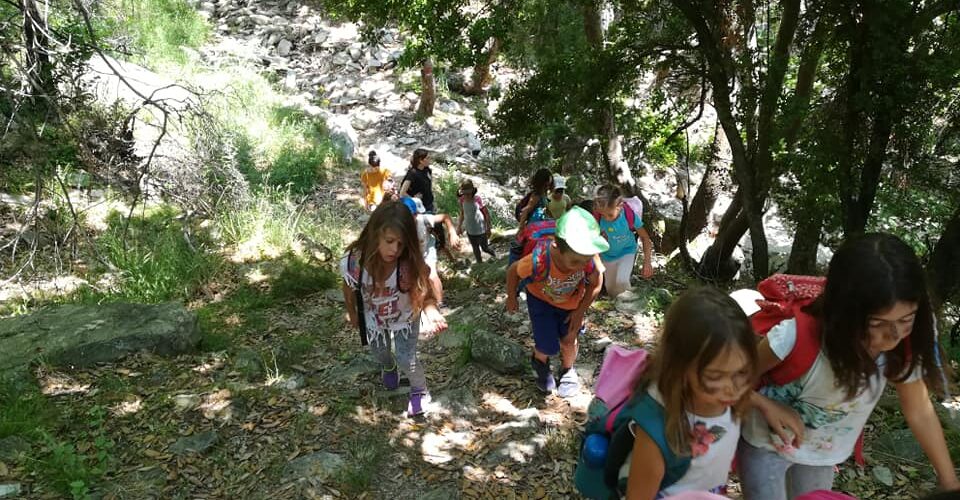I’ve never been one for a lot of praise. Not as a mother, not as a teacher. But I didn’t feel uncomfortable about it either, even though I was against what is customary and has become established in parents, which is to recklessly hand out thumbs up in every situation and in every situation. child’s energy.
And I was like that maybe, because in my life until I reached the dream, I never got many thumbs up. There are very few times that I remember my parents telling me well done in my childhood, because they considered it very simple, that it is self-evident to work from a very young age and to be responsible for yourself and for others around you. Going back in time, now that I have come to create the school of my dreams, I realize that maybe it was my education that led me here. And this because I was only concerned with myself and my goals and was not influenced by the thoughts and perceptions of others around me, who were of the opinion that this venture of establishing a school was dangerous for the whole family.
So, more than experience, I was sparing with thumbs up. And what I have deeply realized today, mainly through the observation of people around me and especially children, is that praise when given too much disorients a person from his goal, which means I do things not to achieve what I want and have choose for myself, but to get the thumbs up. At first from the parent, the teacher, the friend and then from the superior, the employer, the politician etc. And this is how man loses himself.
When we say well done to a child for the obvious e.g. why he ate alone, why he went to the toilet, why he threw the garbage in the bin, then they cease to be self-evident. We strengthen the child through actions that enable him to try many times until he achieves his goal. We give him the time and space he needs and take the needs of each age seriously. We respect it through the knowledge of what it needs at each stage of its development and we can do this simply by observing it. And no bottles, feeding and ground food, nappies, hugs or prams etc. until ages when he would have to do it in another way and on his own. The child guides us, as long as we have clear vision to see it.
You don’t say well done to someone, because he breathes and satisfies his needs (he eats by himself, washes his hands, etc.), as this is how you send him the message that he could not do it. When the child shows us his drawing, what he is asking of us is not to say well done and essentially get rid of it. It is because through this expression (painting) he wants to communicate with us on a deeper level, which means that we have a discussion on what he expressed according to his age and level (e.g. what it is, how he thought about it and the he imagined, why he used these colors, what else he could do, what he feels, etc.).
Nature is fair and honest and that’s why she’s the best teacher, because when the child finally gets to climb the tree, nature won’t tell him well done for succeeding. He will get satisfaction from his act and this makes it possible, because he relies on himself and his motivations are internal. Because as many times as he failed in his attempts, no one judged him, no one told him try again or not, you can or you can’t, it’s dangerous or it’s not etc. no one encouraged it or discouraged it, so when he reached the ultimate success it was because he wanted it so much and because he trusted himself.
George, one of the children I had in Kazaviti, Thassos (10 days without parents in the forest), his effort and desire all days, was to climb the big plane tree in the square. And when he finally made it on the last day, his joy was so great that he needed no applause to make it greater. The bet was with himself. Every time George sets a goal, he will know how to rely on himself. If he does not succeed, it will be because he did not want it with passion or because in the course of his development he was disoriented by parents, family, school, etc.
” MY SOUL SPOKE TO ME AND SAID, “Do not rejoice in praise and do not be saddened by condemnation.” Before my soul spoke to me, I doubted the value of my work. Now I understand that trees bloom in spring and harvest in summer without seeking praise, and shed their leaves in autumn and become naked without fear of condemnation…” Kahlil Gibran, Thoughts and Meditations.
Have a nice weekend!!!
Yours sincerely,
Elizabeth Georgiadou


Leave a Reply